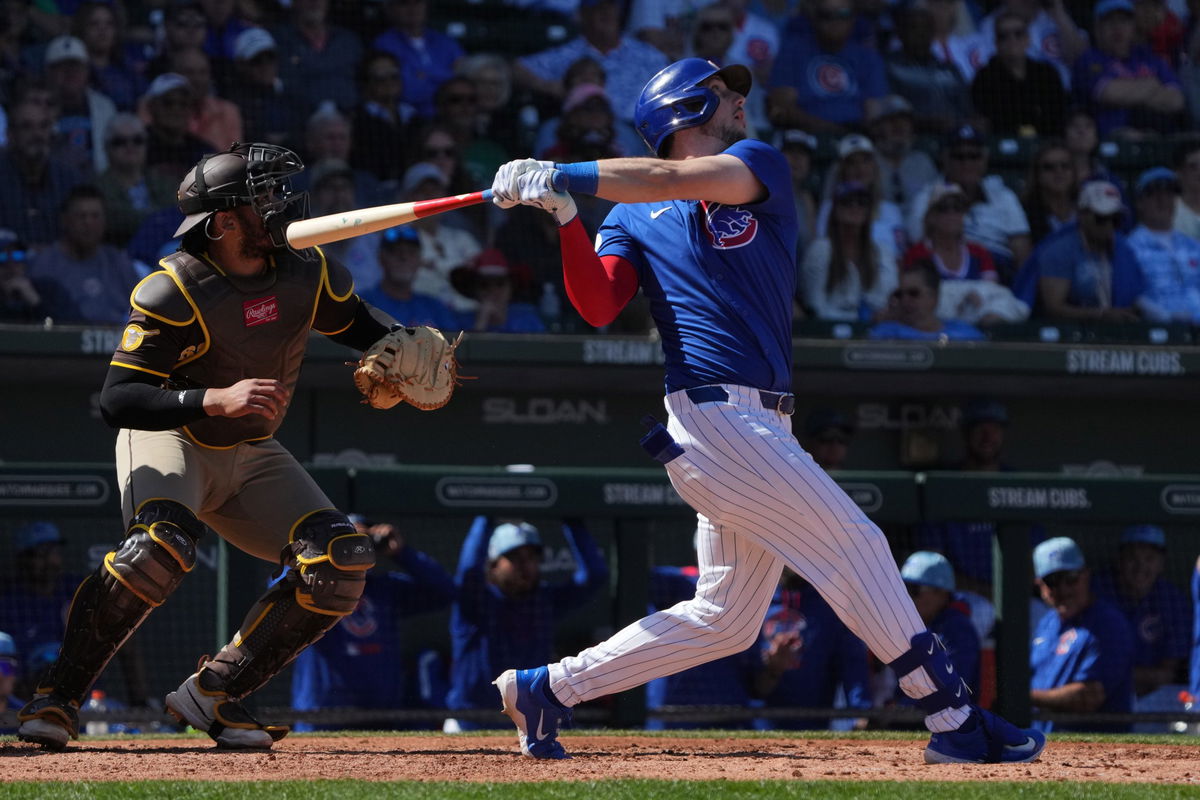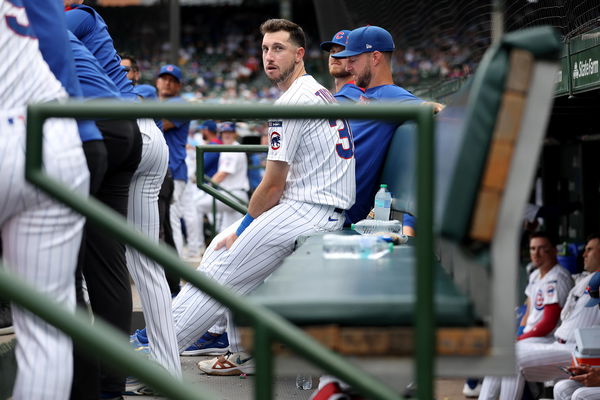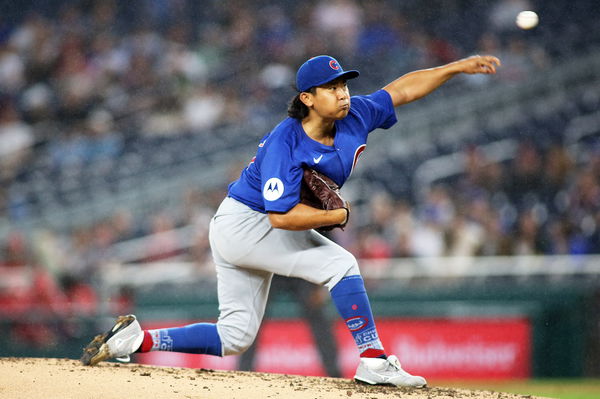
Imago
Credits: IMAGO

Imago
Credits: IMAGO
The Chicago Cubs’ pursuit of Kyle Tucker has taken a clear turn. Insider reports say that the front office has stopped talking to the outfielder because he didn’t play well in the second half of the season. In 2025, Tucker had a good slash line of .266/.377/.464 with 22 home runs and 73 RBIs in 597 plate appearances. But his performance dropped sharply over the last four months of the season, which makes it hard to believe that he is worth the $40.2 million a year that Spotrac predicted.
Watch What’s Trending Now!
Sam Olbur of Locked On Cubs analyzed why the Cubs may not offer Tucker a long-term deal, pointing to a worrying drop in his stats that started in July.
Tucker posted a .218 average with a .675 OPS in July, followed by a .244 average and .735 OPS in August. September brought further regression as he managed just a .158 average in limited action, before closing October at .259. Olbur emphasized that these four months cannot be dismissed as selective criticism.
ADVERTISEMENT
“He wasn’t good enough for 400 million,” Olbur explained, noting that budget constraints make such an investment impractical for Chicago’s front office. Tucker’s 136 wRC+ for the season masked significant month-to-month volatility, with a hairline fracture in his right hand sapping the power that produced his .198 ISO early in the year.
The argument is about whether Tucker’s injury is to blame for the drop in performance or if it shows that there are bigger problems with durability.

Imago
Image: MLB.com
His 14.6 percent walk rate and 14.7 percent strikeout rate stayed steady, which means he still had good plate discipline. But Olbur said that picking 25-game samples from August to make things look better was wrong.
ADVERTISEMENT
“I’m just taking the months,” he said, rejecting the notion that isolating brief hot streaks provides meaningful analysis.
ADVERTISEMENT
Tucker, too, acknowledged the uncertainty surrounding his future with measured restraint.
“We’ll see what happens. I don’t know what the future’s going to hold. But if not, it was an honor playing with all these guys.”
Yet, because of his career record, Kyle Tucker’s trade value is still high, but the Chicago Cubs may have decided that spending nine figures on a player who only got 133 hits while dealing with injuries is too risky because of their rotation needs and payroll limits.
ADVERTISEMENT
The Tucker decision gets even harder when you look at the bigger puzzle of the Chicago Cubs’ roster.
Chicago Cubs and Shota Imanaga heading toward offseason split
They still don’t know what to do with left-handed starter Shota Imanaga. The Cubs turned down the rest of his contract, and Imanaga then turned down his player option. Now the team is watching as he considers a deadline of November 18.
ADVERTISEMENT
He can either accept the $22 million qualifying offer or become a free agent.
The fact that it’s unclear whether Chicago can get better terms if Imanaga tests the open market makes their offseason spending even more complicated.
Top Stories
After Stephen Curry’s Exit, Bryce Harper Hints at Cutting Ties With $2.5B Partner

Blue Jays To Ditch Kyle Tucker For Beloved Toronto Star As Toronto Bids To Bolster Vladimir Guerrero Jr., Per Insider

MLB Rumors: Diamondbacks’ $116.5M U-Turn Spoils Alex Bregman Market, Bo Bichette’s Blue Jays Return While Yankees Left Empty-Handed

Craig Breslow Told to Copy Dodgers’ Mookie Betts Masterstroke as Bo Bichette Market Spirals Out of Control

Yankees Told to Shield Aaron Judge as Reluctant Brian Cashman Stands Firm on Cody Bellinger Deal

Kerry Miller from Bleacher Report said that Imanaga would sign a two-year, $38 million deal with the Texas Rangers. But he also pointed out that the left-handed pitcher had some weaknesses.
ADVERTISEMENT

USA Today via Reuters
Aug 30, 2024; Washington, District of Columbia, USA; Chicago Cubs starting pitcher Shota Imanaga (18) pitches during the third inning against the Washington Nationals at Nationals Park. Mandatory Credit: Daniel Kucin Jr.-USA TODAY Sports
Miller noted that “teams who play their home games at launching pads will probably keep their distance, but those with more cavernous venues should be intrigued here.”
The assessment brought to light Imanaga’s main problems.
ADVERTISEMENT
Giving up too many home runs and having trouble controlling the ball in the strike zone.
Even though he had a 3.79 ERA in 144.2 innings last season while dealing with a hamstring injury, his drop in speed made people worry about how well he would do in the future.
The 32-year-old lefty started the year off right with a 2.91 ERA over 29 starts, which gave fans hope that he could make the jump from Japan’s Nippon Professional Baseball. That promising start now stands in stark contrast to the contract problems that came after it.
ADVERTISEMENT
The Cubs’ strange way of dealing with his situation shows that they are aware of their budget, which is why they may not focus on Tucker, too.
Texas makes sense for Shota because of its rotation needs.
Merrill Kelly is now a free agent, and the Rangers don’t have many left-handed starting options besides Jacob Latz. Nathan Eovaldi and Jacob deGrom are their only other options.
Imanaga’s skill set fills that specific gap, making him a good fit for their rotation even though there are some red flags about how he has been playing lately and how his time with the Cubs ended.
ADVERTISEMENT
ADVERTISEMENT
ADVERTISEMENT

